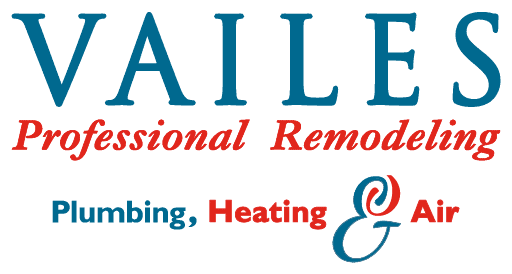What Is Short Cycling and Why Is It Important?

Imagine starting your car, driving a block, and turning off the ignition. Then, you fire up your car again, drive another block, and park your car at the next intersection. If you drove this way to work and back each day, your car would probably not last very long. It’s tough on many of a vehicle’s key systems to start up and turn off over and over again.
For your heating, ventilation, and air conditioning (HVAC) equipment, short cycling is that equivalent. It means your equipment is turning off and on again much more than needed, running your furnace or air conditioner in that same rapid and start-and-stop cycle. Ideally, you want your HVAC equipment to run for longer periods and hold cycles to a minimum. That would be comparable to highway-driving miles.
Our professionals at Vailes Home Improvement Services want you to understand short cycling and what you can do about it to protect your HVAC system in your home.
What Causes Short Cycling?
Occasionally an HVAC system fault can result in short cycling. Power outages from storms, breaker switching, or bumping a condensate switch can also cause short cycling.
Other times, the capacity of an HVAC system does not match the heating or cooling load it is trying to manage. For example, when an HVAC system is too large for its given area, it will tend to shut off too frequently. Ideally, your heating or cooling should be running nicely and consistently all the time during peak periods. This results in a longer life span for your HVAC equipment as well as efficient-energy usage.
Some Built-In Protection
Many pieces of HVAC systems have built-in shutoff controls to prevent major equipment failure. Systems can often detect extremely high temperatures or out-of-range pressure issues. For example, furnaces usually have a maximum limit, pressure switches monitor coolant levels, and compressors and motors have overload triggers.
After these built-in safety controls are triggered, they will remain off for a certain period of time that protects your system against rapid short cycling.
Use Dead-Band Thermostat Settings
Although you probably have an automatic thermostat that kicks on and shuts off your furnace or air conditioning system at specific temperatures, these typical settings tend to contribute to short cycling. Some HVAC systems have variable capacities, which can help; however, some thermostats allow a dead-band setting, which means your air conditioning system would come on at a slightly higher temperature and shut off at a slightly lower temperature with a maximum number of cycles per hour.
How Is Short Cycling Damaging?
Short cycling can result in a host of problems for an HVAC system. Failing to address short-cycling issues in your Virginia home may lead to one or more of these conditions:
• Inadequate temperature management
• Poor dehumidification
• Electrical system strain
• Dimming lights
• Premature ignitor failure
• Oil loss and lubrication problems
• Low energy efficiency
• Ventilation issues
• Component, contactor, relay wear
Regular Maintenance Can Reduce Short Cycling
By having a professional inspection and tune-up of your existing HVAC system on a regular basis, you may be able to reduce or eliminate short cycling and associated problems. Our trained technicians can identify issues as well as recommend the correct size of equipment for your particular home if you need to replace your furnace or air conditioner.
In addition, you can talk with one of our professionals about special equipment like thermostats that offer dead-band settings to reduce short cycling issues further.
Contact Us Today
For more information about short cycling and how to prevent it, call our team at Vailes Home Improvement Services in Fishersville, VA. Our trained professionals can help you address short-cycling issues with service solutions and equipment suggestions. Call us at 540-942-0198 or request service online.
Need Service?
Contact the experts at Vailes Home Services.
Call us at 540-942-0198!
